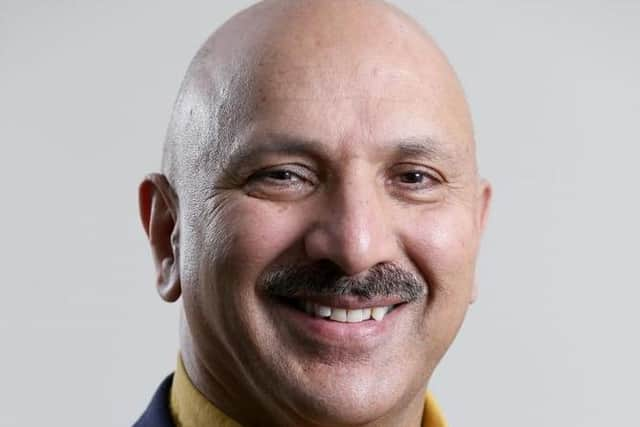Poverty is a scourge and it is the ethnic minority communities that suffer the most - Dr Mohammed Ali
According to the study, 13.4 million people were stuck in poverty during 2020/21, including a million children under the age of four. These figures are truly shocking but given the fact the UK is the world’s fifth largest economy they are also a damning indictment on modern Britain.
And it gets worse – if you’re from a black and minority ethnic background. There was a strong correlation between poverty and race going into the pandemic and this has simply continued. The report found that half of all people living in households headed by someone of Bangladeshi ethnicity were in poverty, while the poverty rate for Pakistani people in the UK is more than double that of white people.
Advertisement
Hide AdAdvertisement
Hide AdThe JRF’s study is backed up by analysis published last autumn from the Runnymede Trust charity, a race equality think tank, which showed that black and minority ethnic people are 2.5 times more likely to be in poverty than white people.


What’s equally worrying is that despite making up only 15 per cent of the UK population, this same group accounts for more than a quarter of those trapped in what’s known as ‘deep poverty’ (having an income that falls more than 50 per cent below the relative poverty line).
The Runnymede Trust’s report points out that changes to the tax and social security system meant that black and minority ethnic women, for instance, are among the worst affected and currently receive £1,040 less a year on average in cash benefits than they did a decade ago.
It’s not surprising then that Black and minority ethnic households are among those that have suffered most during the cost of living crisis, compounding the damaging financial impact caused by Covid.
Advertisement
Hide AdAdvertisement
Hide AdThe Energy Price Guarantee announced last year was a welcome step in the right direction but it is minority ethnic households that benefit less, with just under a third, 32 per cent, of white people likely to experience fuel poverty this winter compared to two thirds, 66 per cent, of Pakistani and Bangladeshi people.
At the QED Foundation we have been highlighting and addressing issues surrounding poverty in Bradford and beyond for the past 33 years. We have invested more than £18m in disadvantaged communities across the UK and helped more than 36,000 people from ethnic minority backgrounds by providing education and training, which increases their chances of a better job and not being caught up in a cycle of poverty.
Charitable foundations like ours along with community projects can, and do, make a tangible difference on the ground, but they cannot do all the work on their own. We have heard a great deal about ‘Levelling Up’ in the North, but if it is to have a genuine, and lasting, impact then it has to be targeted at those areas and communities that need the most support.
This is one of the areas highlighted by Runnymede’s report which has called on the Government to apply a race equality lens to its ‘Levelling Up’ agenda and address the longstanding regional patterns of inequalities that exist in the UK.
Dr Mohammed Ali is founder and chief executive of the QED Foundation.